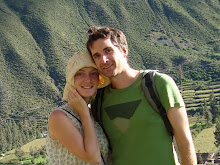The 1970s are a very dark period in Argentina's history and politics, as in so many Latin American countries. The optimism of the 1960s and early 70s of electing left-wing politicians and parties that would introduce reforms leading to greater equality were crushed by military coups followed by dictatorships.
In Argentina in 1976 the military once again overthrew the government and assumed power. During their period of rule until 1983, civil liberties were taken away - freedom of speech, freedom of association. Known as the 'dirty war', an estimated 30,000 people 'disappeared', suspected of 'subverting' the state. They were taken from their homes in the middle of the night, blindfolded, or arrested on the street.
Amongst 'the Disappeared' are student leaders, union leaders, doctors, teachers, artists and writers. Many of these people were first taken for interrogation and torture underneath the Club Atletico in Buenos Aires. The building was demolished towards the end of the dictatorship in the early 80s and a motorway flyover has since been constructed in its place.
Recently, remains of the gruesome government building were discovered and work is underway to excavate the area and uncover more of what took place there as part of a movement for 'memory, truth and justice'. There is an organisation dedicated to these aims and to ensuring that this may never happen again. They have a powerful website, www.desaparecidos.org which includes a memory wall of photos of the 'disappeared' as they uncover more about who they were and personal details of some of the torturers.
Dotted around the city on the pavements are plaques on the exact spot where individuals were arrested, never to be seen again. The plaques detail their names and date of disappearance.
The Mothers of the 25 de Mayo Square (the main square outside the presidential palace) was founded by the mother's of the disappeared. Every Thursday for over 20 years they met together in the square and walked in silence and dignity with an incredibly moving sense of purpose carrying photographs of their children and demanding justice. They have since taken on other human rights and political causes and continue to meet and march.
 People known to have been taken to Club Atletico and were never seen again
People known to have been taken to Club Atletico and were never seen again The excavation area
The excavation area Underneath the flyover - 'San Telmo (district of Buenos Aires where many were arrested) has a memory, we have 30,000 reasons to go on fighting, do not forget nor pardon'
Underneath the flyover - 'San Telmo (district of Buenos Aires where many were arrested) has a memory, we have 30,000 reasons to go on fighting, do not forget nor pardon'

No comments:
Post a Comment